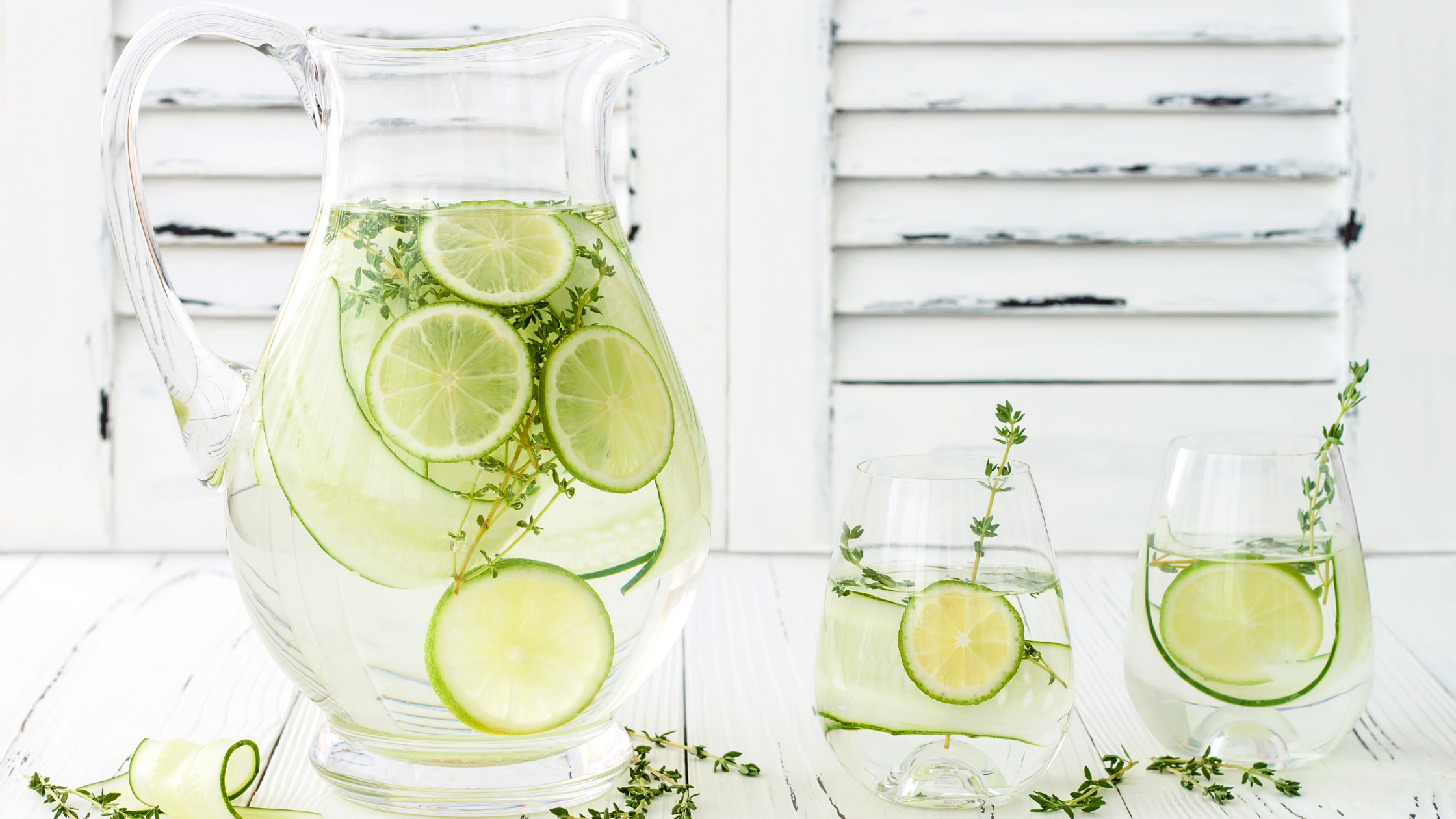14 Tips for Controlling Your Leaky Bladder
Written by Tye Medical on Jul 20th 2021
Even though leaky bladder (also known as urinary incontinence) is a symptom rather than a disease, it can dramatically impact your life. Many people feel a sense of shame, refusing to even leave their homes because of the involuntary loss of urine. Other than the inconvenience, it most negatively affects people’s social lives.
But instead of adjusting your life to your incontinence symptoms, seek to manage your symptoms to suit your life. We’ve compiled 14 tips to help you live fully and beat those sneaky leaks. Start by making the changes that you think will most benefit you and continue until you see your symptoms subside or even disappear.
Not every tip will benefit you because the outcome will depend on what’s causing your symptoms. But you’re sure to find some suggestions helpful in curbing incontinence severity and frequency.
1. Watch How Much You Drink

How much liquid do you consume in a day? Most of us can only guess, and that’s one reason for using a bladder diary (see below). The more you drink, the more you’ll need to urinate, which can trigger your leaky bladder.
But not drinking enough can also be unhealthy for your urinary tract because dehydration irritates your bladder and worsens incontinence symptoms. Experts recommend that you drink when you’re thirsty.
This is a safe guideline for most people, but if you’re over 65 or rarely feel thirsty, shoot for 64 ounces of total hydrating liquids (includes water and most non-alcoholic or caffeine-free beverages). If you’d like to drink less than this, talk with your doctor about a safe fluid intake for you.
Remember that it’s best to sip your drinks throughout the day rather than guzzling large amounts at once to “catch up.” This can overwhelm your bladder, triggering urgency and urine leaks.
2. Keep a Bladder Diary
If you’re not sure about the cause of your leaky bladder, or if you want to manage your fluid intake better, a bladder journal is a great place to start. This is where you’ll record urine leaks, including the time they occur and how much fluid passed. You should also include what you were doing at the time of the leak. Were you exercising, coughing, sneezing?
It’s also important to record all fluid intake (what you drank and how much) along with your voiding time. The information you collect will help will you and your doctor pinpoint the cause.
3. Avoid Caffeine
Caffeine is a known bladder irritant and a diuretic. It flushes fluids from your system, triggering urination. When it irritates your bladder, it stimulates muscle contractions that intensify leaky bladder symptoms.
Beverages like coffee, tea, and soda contain caffeine, but so do foods like chocolate and some medications for headaches and migraines. According to most doctors, less than 200 mg per day is a safe amount. But decaffeinated coffee and tea might not be a better option because they still contain bladder irritating ingredients.
4. Avoid Alcohol
Alcohol is also a diuretic, and since many people consume more than a couple servings at a time, it’s also very dehydrating. Alcoholic beverages will dehydrate you more quickly than other diuretics. Because of this and its cognitive effects, it’s more challenging to recognize that you must void, which can increase the likelihood of bladder leaks.
5. Avoid Citrus Juices

Enjoying an orange or grapefruit is healthy and safe. But drinking juices means you’re getting a higher volume of acids. Citric acid (and other acids) irritate the bladder, aggravating bladder discomfort and leaks. If you want to reduce your leaky bladder symptoms, cut these beverages out of your diet and see if you notice any improvement.
6. Limit Oxalic Acids
Oxalic acid is naturally found in a variety of foods and usually doesn’t cause a problem. But foods like spinach, rhubarb, beets, chocolate, peanuts, and sweet potatoes contain high levels. This acid can irritate your bladder lining and stimulate urine leaks, especially if you’re sensitive to it.
In high amounts, it can also cause kidney and stomach problems. Unless you’re extremely sensitive, you probably don’t need to cut these foods entirely from your diet. Just be mindful and limit how much you eat.
Cigarettes are also extremely high in oxalic acid, so add this to your list of reasons to quit.
7. Limit Carbonated Beverages
You’ve probably already figured out that the acids in soda aren’t good for your bladder—but carbon dioxide can also be problematic. The fizz in sparkling water, seltzer water, club soda, etc., is carbon dioxide that makes urine more acidic. Acidic urine triggers the urge to go, worsening frequency, urgency, and urine leakage.
Instead, drink flat water more often. Are you bored with plain water? Try these flavorful water recipes to keep things interesting.
8. Practice Double Voiding
Your leaky bladder might need some extra help to empty. Often, fluid remains even though it feels like you’ve finished. The lingering liquid means your bladder will fill again quickly, causing more frequent bathroom trips and an increased risk for incontinence.
If you want to empty your bladder, stand up when you’ve finished voiding, then sit again and lean forward. You might find that you pass additional liquid. Remember to relax to help the process.
9. Fight Infection with Probiotics

Bladder infections can trigger incontinence symptoms, even for those who don’t usually experience leaks. Maintaining a healthy, bacteria-free urinary tract helps with bladder control.
Healthy bacteria (probiotics) like Lactobacillus acidophilus protect your urinary tract (bladder, kidneys, urethra) from the harmful bacteria that cause infection. If you’ve recently been taking an antibiotic (that also kills your good bacteria), or if you struggle with frequent UTIs (urinary tract infections), then try taking a daily probiotic supplement that contains Lactobacillus acidophilus.
If you see improvement after a month or two, you might be able to back off the supplement and eat at least 6 oz of plain yogurt every day (which is also full of good bacteria). Otherwise, you can continue taking the probiotic supplement.
10. Don’t Hold It
It’s best to empty your bladder as needed. This doesn’t mean you must drop everything the instant you sense the urge. But it does mean that you shouldn’t put off a trip to the bathroom for too long. For example, if you feel the urge to go during supper, don’t make yourself wait until the meal is over.
Holding it too often or for too long can cause your bladder to stretch and become oversized, which can weaken your muscles and make you prone to a leaky bladder. Holding urine too long can also cause bladder infections.
11. Outsmart Urge Incontinence
It’s easy to panic when you have urge incontinence because you get nearly no warning that you need to go. It probably seems counter-intuitive, but when you first realize you need to go, the best thing to do is relax rather than panic.
Instead of immediately running to the bathroom and risking urine leaks along the way, stay put and clench “down there.” Even using your buttocks muscles can help to curb the flow. Clench as tightly as you can for a few seconds and repeat several times. You’ll likely feel the urge to urinate subside, giving you time to make your way to the bathroom calmly.
12. Practice Kegel Exercises
You’ve likely heard of this technique before because it’s been around since the 1940s. According to experts, Kegels reduce and prevent some forms of incontinence regardless of age or gender.
To perform Kegels, act like you’re trying to hold back gas or urine without tightening your “butt” muscles, legs, or abdomen. Focus the tension on the sphincters around the anus and vagina (if applicable). This action engages your pelvic floor muscles. Hold for five seconds and then rest for ten. Practice this periodically for several weeks, and you might notice you can hold urine longer.
13. Check Your Meds

If you’re taking high-blood pressure medications, antidepressants, diuretics, or sleep aids, these drugs could be triggering or worsening your leaky bladder symptoms.
Many of these medications relax nerves or muscles, leading to incontinence because you’re not getting the “I’m full” message until later. If you suspect this is the case, discuss your concerns with your doctor.
14. Reduce Stress
Researchers have found that anxiety and depression are risk factors for developing incontinence. And we know that stress, anxiety, and depression are intricately linked.
Even if you don’t recognize the degree of stress you’re under—your bladder and bowels do. Stress affects your brain and nervous system, which have strong ties with your urinary tract and GI tract. Often, stress manifests with physical symptoms—including frequent and urgent urination that can cause bladder leaks.
Reducing all kinds of stress, including emotional stress, can noticeably curb urine leaks.
Manage Leaky Bladder Symptoms with Stress-Free Products
You might not make incontinence disappear but following the above tips might improve symptoms and their frequency.
Wearing the products most suited for your needs can drop your stress levels. Try our Protective Underwear for moderate to heavy leak protection that’s both comfortable and reliable. Also, check out our two-piece system for worthwhile cost savings.
For lighter leaks, try our light incontinence products.


